By Allison Campbell-Jensen
Del Reed’s first job in the Libraries was a two-week stint moving furniture. About 40 years later, he recently retired from the Health Sciences Library as liaison to the Center for Bioethics, the Medical Division of Physical Therapy, and the Center for Allied Health. He says: “I don’t have any regrets about the career that chose me.”
A scholarly path
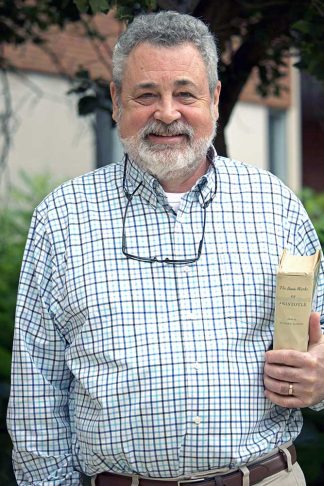
Del Reed
Del’s involvement with the Libraries grew as he followed his scholarly path. College was different back then,” he says. “It wasn’t nearly as expensive.” He earned his undergraduate degree in six or seven years.
During that time, right after the furniture move was complete, he asked about becoming a student employee in the then-Bio-Medical Library. He was hired and the three- or four-year experience, it turns out, became a first step to his career.
After Del was accepted in the doctoral program in philosophy, he sought a full-time job on campus so that he could apply for a Regent’s Scholarship. “I might be foolish enough to get the philosophy degree but not foolish enough to have a lot of student debt,” he says.
He approached the librarian Gertrude Foreman to point out she was always short-staffed. He asked: “Why don’t you hire me for the reference desk?” He was hired for 32 hours a week, received a Regent’s Scholarship, and also was allowed time to pursue his philosophy studies while working.
Reference suited Del
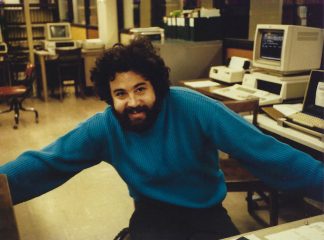
A young Del Reed
While still a student employee, Del worked Sundays and evenings when no full-time staff were on. People would ask him questions he couldn’t answer — and he would follow up with the librarians later and learn how to answer those questions. As a full-time employee, that was his favorite thing: doing reference consultations one-on-one or with small groups.
In one case, his reference skills were even life-saving.
He was working until 7 p.m., quite a few years ago. There was a clinic right across from the library, and, after an appointment, patients often would come into the Bio-Medical Library to find out more about their diagnosis. One evening, a couple in their sixties came in, Del says, and he can’t remember the details, but “it wasn’t good.”
“I just wanted to say thank you, because you saved my wife’s life.”
—Husband of a patient to Del Reed
As he typically did, Del located a textbook and a dictionary and set them up at a table. While they were gaining a better understanding, Del did some research and printed up a couple of articles to give to them. About six months to a year later, the husband came in and asked if Del remembered him. Del thought he looked a little familiar. “I just wanted to say thank you, because you saved my wife’s life.” One of those articles that Del had given them was about a clinical trial; they had shared it with her doctor, who then got her enrolled.
Reference work “dissipated” with the rise of electronic resources, however, so Del had to adjust his job. He became a liaison who went to departments to help students and faculty.
The Bio-Medical Library had a reputation for excellent public service. Del exemplified that attitude of service and also trained students in it.
“Librarianship is a noble profession,” Del says. “We help people, . . . and it’s rewarding. You provide information to people and you get a lot of positive feedback. Students, faculty, and patients have been very grateful.”
Entering retirement
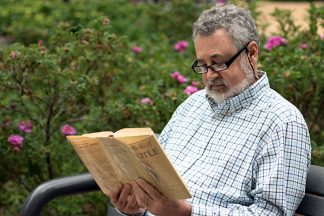
Del Reed
Now that he has retired, however, Del will miss his colleagues who became friends, not just in the Health Sciences Library but also in the larger Libraries community. Once the threat of the coronavirus is gone, he’s looking forward to get-togethers with them. He’s also considering volunteering in the Makerspace in the new Health Sciences Library.
But for right now, he has plenty to do. Del will continue working on a book on philosophy.
“That’s my real love in life: philosophy.”
He says he’s content to wake up every morning, get a cup of tea, then read philosophy for a couple of hours. In the afternoon, he does some writing. It will keep him busy for quite a while.


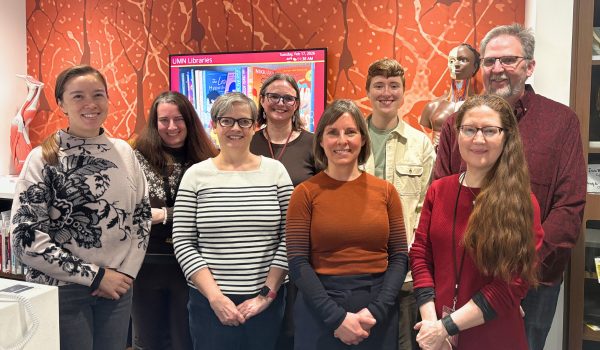
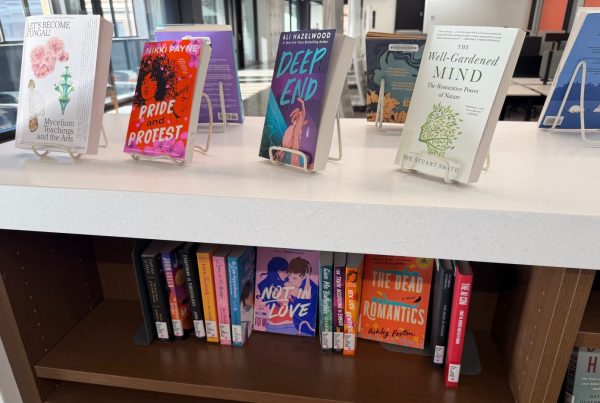

He and I were fortunate to work reference desks before Google. Reference has changed tremendously in the past decade.